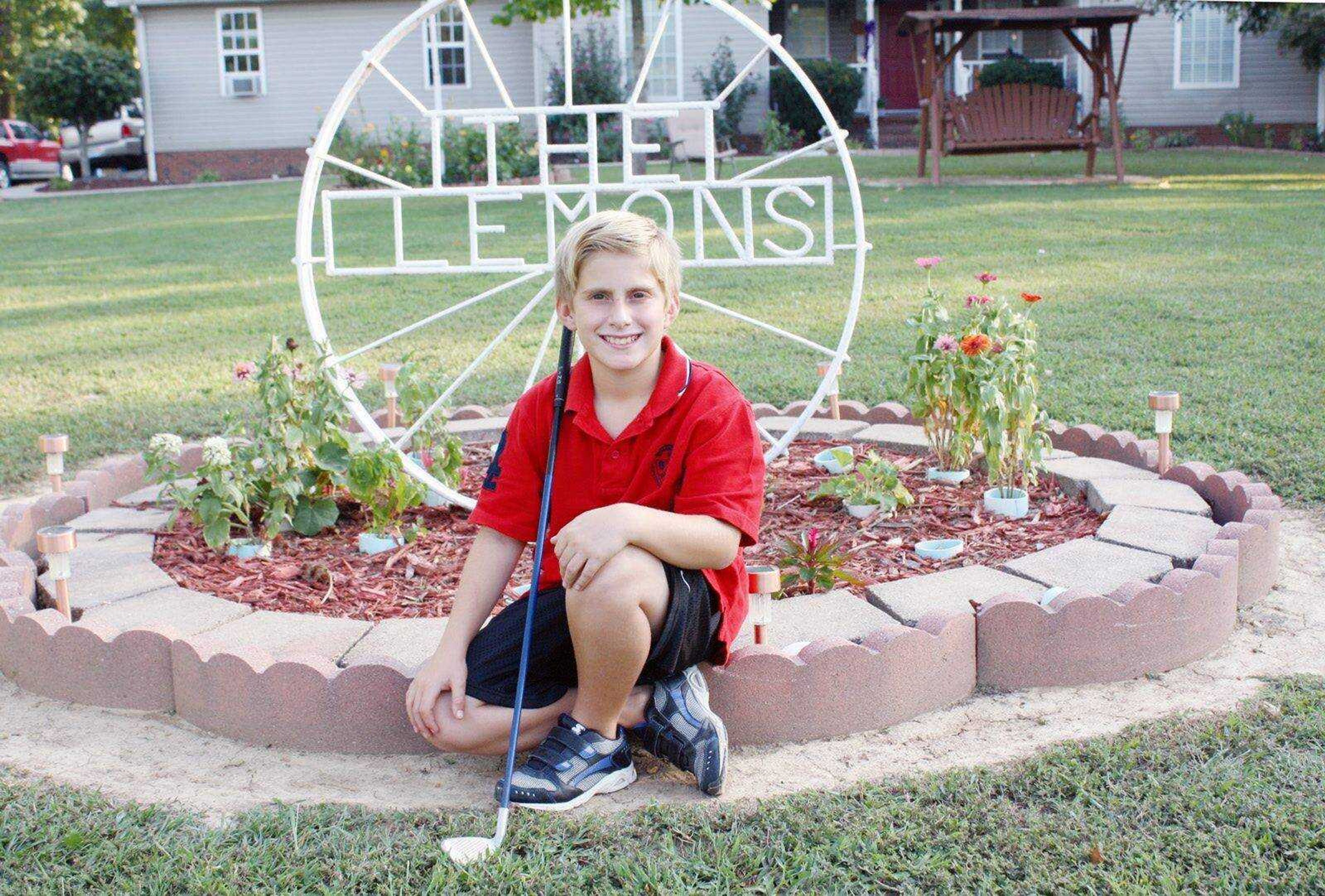Blood pressure reading leads to boy's diagnosis
Editor's note: This is the sixth in a series of articles from the Dexter Daily Statesman focusing on special needs of special children. By Noreen Hyslop Dexter Daily Statesman DEXTER, Mo. -- An adult visiting the doctor expects the familiar blood pressure cuff to be placed on their arm and the pressure recorded as part of the routine. ...
Editor's note: This is the sixth in a series of articles from the Dexter Daily Statesman focusing on special needs of special children.
By Noreen Hyslop
Dexter Daily Statesman
DEXTER, Mo. -- An adult visiting the doctor expects the familiar blood pressure cuff to be placed on their arm and the pressure recorded as part of the routine. The procedure is not typical, however, with a child's visit to the doctor. But the family of Joshua Lemons has learned over the past year just how important it can be.
Joshua is a fifth-grader at Dexter Central Elementary School. Like any 10-year-old boy, he enjoys sports and video games and just being 10. He's somewhat of a celebrity on Dexter's Hidden Trails golf course where he's played with his grandfather for as long as he can recall. Plaques and medals decorate the bedroom of his home, which neighbors the course.
Josh also likes football and has always anticipated the day he would don a Bearcat jersey and pass the ball on the local gridiron. But Josh and his grandparents, with whom he's resided since he was small, had to face the reality nearly a year ago that Josh would never play football -- or any contact sport. Josh has autosomal dominant polycystic kidney disease.
"It was in November of last year, and I got a call from school that Josh wasn't feeling well," Josh's mother Ann Lemons said.
He was vomiting and had a bad headache. When it didn't subside, the Lemons took him to his doctor.
"Josh hadn't been gaining weight. He had just turned 10 and weighed 53 pounds. We always questioned his doctor about that," his grandfather Bill Lemons said. "We were always told not to worry."
A series of tests was performed and among them, a simple check of Josh's blood pressure. Josh's diastolic number was 183. The normal number for a 10-year-old is 77 to 83.
By day's end, Josh's family found themselves at St. Louis Children's Hospital. Weather conditions prohibited a helicopter from picking him up, but an ambulance was sent from St. Louis to get Josh.
A battery of further testing was done throughout the early morning on that cold and foggy November day. An exhausted mother and grandparents were told within 24 hours that Josh had a disorder involving both kidneys. The disease, autosomal dominant polycystic kidney disease, is a genetic disorder, although no family history indicates others have suffered from the illness.
"We will probably never know, though, who in the family may have had the disease years ago and was never diagnosed," Ann Lemons said.
The disease is the most common genetic, life-threatening disease affecting an estimated 12.5 million patients worldwide. According to the National Institutes of Health, "autosomal dominant" means that if one parent has the disease, the child will inherit the gene 50 percent of the time. The disease is present at birth, but is seldom diagnosed in its early stages. Regardless, an early diagnosis doesn't necessarily help the outcome.
Symptoms include abdominal discomfort, urinary tract infections and elevated blood pressure.
"Josh has always been a relatively healthy child and so doctors never took his blood pressure," his grandfather said. "He did have occasional headaches maybe twice a month, but not severe. But he just seemed to slow down last winter, and his energy level just wasn't what it had been."
In Josh's disease, the kidneys are typically covered with fluid-filled cysts, and become enlarged. As the cysts collect more and more fluid, they can separate and compress the neighboring renal area. The result is compromised renal function or even renal failure.
Josh was placed on medication to lower his blood pressure. He spent a few days at St. Louis Children's Hospital until his blood pressure leveled off.
His grandparents said the staff in St. Louis have helped them with questions and the family returns every six months to check the progression of the disease.
Polycystic kidney disease does not go away. Josh will always have the disorder. The cysts that exist are not painful for Josh; but should he develop pain, doctors can drain the cysts of fluid surgically.
"The doctors have told us that Josh will likely be on dialysis at some point, and that some day he will probably be a candidate for a kidney transplant," Ann Lemons said.
There is no cure for the disease, but you can manage the symptoms with medication and blood pressure checks.
"Josh is just like any other kid," his grandfather said. "He just has to be careful not to be hit from behind or in the kidney area, so he's going to have to stay away from contact football, but there are worse things in life. His love of golf helps ease that burden."
The Lemons family realizes that Josh's life is threatened by PKD. The disease, however, doesn't get in the way of Josh living a full, active life like any other 10-year-old. For that opportunity, the Lemons' give thanks daily for the prayers of the community and beyond, the accommodating school staff, friends, family, and most of all, Bill Lemons says, "a higher power who looks after Josh every day."
Connect with the Southeast Missourian Newsroom:
For corrections to this story or other insights for the editor, click here. To submit a letter to the editor, click here. To learn about the Southeast Missourian’s AI Policy, click here.










